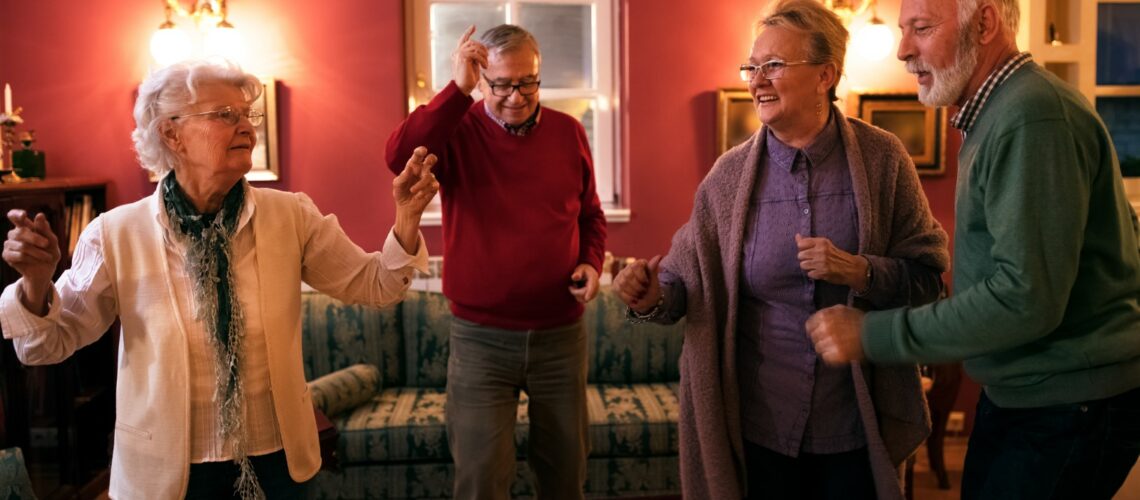There’s currently no cure for dementia, but early diagnosis and appropriate care can help manage symptoms and improve quality of life. Caregivers and senior living communities have found that the therapeutic use of music is one way of enabling individuals with dementia to communicate and increase the quality of their lives. Music has the power to relax, excite, enhance mood, inspire movement, improve memory, and bring people together—no matter what your age. Here is a look at the positive role music can play in seniors’ lives and how to incorporate it into everyday living.
Benefits of Music Therapy
Music therapy programs specifically designed for individuals living with dementia offer many benefits, including:
Easing emotional stress: Music therapy can help evoke emotions and memories in individuals with dementia. Even in advanced stages when verbal communication is limited, older adults may still show a positive emotional response to familiar songs, like humming or smiling, bringing them happiness and comfort.
Unlocking memories: Listening to music can also trigger memories from the past. When people with dementia listen to a song from their childhood or significant life event, it can help them recall specific moments and experiences.
Improving mood: Music has the power to improve overall mood and reduce agitation in people with dementia. Familiar tunes can provide a sense of calm and relaxation which helps ease stress for the individual and their caregivers.
Fostering social connections: When music therapy is offered in a group setting, it can help encourage social engagement among seniors with dementia. Group sing-alongs and music sessions encourage communication and connection with others.
Increasing cognitive abilities: Studies show that when individuals with dementia engage with music it helps stimulate various cognitive functions, including attention, concentration, and reasoning. Playing musical instruments or participating in rhythmic activities can also help maintain cognitive skills.
Promoting physical well-being: Finally, regular exposure to music therapy can motivate older adults to move and participate in physical exercises, such as dancing, which can improve physical health, mobility, and coordination.
Harnessing the Power of Music in Senior Living Communities
Music is a powerful tool that can be weaved into nearly every aspect of life. Today, many senior living communities are embracing music as a cornerstone of holistic care, recognizing its profound impact on emotional well-being, cognitive function, and social engagement for their memory care residents. Whether it is music softly playing in the community lobby to create a warm ambiance, group sing-alongs and dance parties, live music performances, church services with worship music, or a formal music therapy program, music can be incorporated into residents’ daily lives in a variety of ways.
Overall, music therapy provides a holistic approach to dementia care and offers the powerful potential to improve quality of life, providing moments of joy, connection, and comfort amidst the challenges of dementia.


